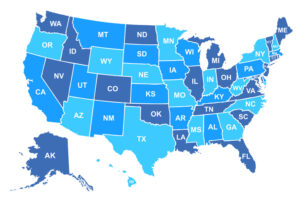
By Jason Levitis, Sabrina Corlette, and Claire O’Brien
Reinsurance is a long-standing tool for stabilizing health insurance markets and reducing premiums. It has played an important role in the success of the Affordable Care Act’s (ACA) individual market as part of section 1332 state innovation waivers. By reducing premiums, reinsurance increases affordability for consumers ineligible for the premium tax credit (PTC). However, the effects on PTC recipients are smaller, mixed, and have received little attention. A study recently published in Health Affairs finds that reinsurance programs can reduce affordability and enrollment for low-income people. In a new article for the State Health & Value Strategies program, Jason Levitis, Sabrina Corlette, and Claire O’Brien assess the findings in the Health Affairs piece and review considerations for states seeking to adopt or extend a reinsurance program. Read the full article here.

